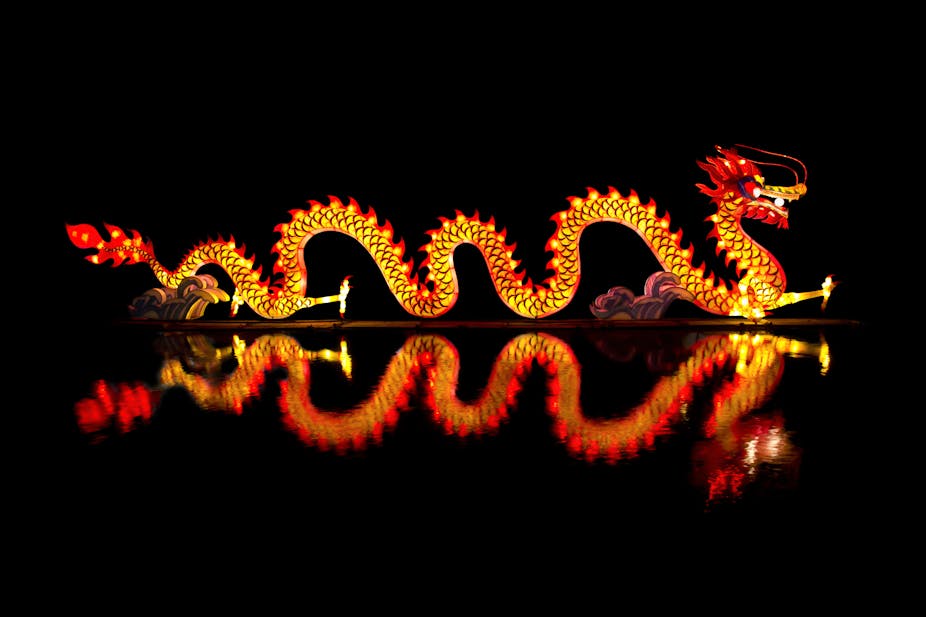This week our series on Russia’s relations with its neighbours reaches China, Moscow’s one-time great communist rival with whom it found much in common in the opening years of the 21st century. Neil Munro, a specialist in Chinese politics, finds that in light of the Ukraine crisis, these interests may have begun to diverge.
Relations between the Russians and the Chinese were certainly not always cordial in the deepest days of communism, but most disputes between them were resolved by the time they signed the Treaty of Friendship in 2001.
As well as resolving numerous bilateral issues, the treaty made explicit that there was Sino-Russian agreement on key principles of foreign policy. They both believed in the pursuit of a “multi-polar world,” the leading role of the UN Security Council in resolving international conflicts and non-interference in the internal affairs of other countries.
These provisions partly reflected both countries’ concerns about NATO’s unilateral intervention in the Balkans in 1999 – and, more generally, Russia’s anxiety about NATO expansion, which it saw not as uniting Europe but moving the dividing line closer to its borders.
Russia finds itself in a broadly similar position in 2015 as the Ukraine crisis drags on, but China’s position is much more equivocal.
The Russian dimension
From the Russian point of view, the war in Ukraine is a struggle for power, not territory. Russia is anxious about having NATO forces within 600km of Moscow, even if an invasion is surely extremely unlikely, and harbours a sense of victimhood arising from the feeling of having given up too much ground at the time of the Soviet collapse.
Russia also worries that the Ukraine-EU free trade agreement could see EU products traded in Ukraine with low or zero tariffs entering its own economic space across the long and porous border and undermining its efforts to nurture its own farm and industrial sectors.
Putin’s preferred option is a united but friendly Ukraine, but the continuing violence in Donbass makes it less and less likely with each passing day. Though time will tell if new efforts by Angela Merkel and Francois Hollande might find a way out of the crisis, broadly the outcome hinges on whether Russia’s elites keep backing Putin and whether Ukraine’s elites eventually concede that a compromise leading to the dilution of their sovereignty best serves their long-term interests. Putin is betting heavily that they will.
The Chinese dimension
The key to understanding China’s position is to realise that its relations with the US and EU are strong and have been getting stronger. These relations are based on trade and investment. China’s volume of trade with the EU is six times greater than its trade with Russia.
Cultural and educational exchanges with the western world are also extremely rich. China’s intellectual and business elite is increasingly proficient in English and other European languages. In many ways, China displays the conservativism of a country that has already “made it” in the global economy. In the current oil price war, China is using the opportunity to build up strategic reserves while Russia is feeling the pinch.

And like the EU, China requires a stable environment in which to prosper. Unlike Russia, which has thrown away the rulebook of international trade in response to sanctions, China feels able to compete within the existing framework.
As a signal that China may be willing to renew the ties it developed with the pro-Russian ancien regime in Ukraine, the premier Li Keqiang met with Ukraine’s president, Petro Poroshenko, at the recent Davos summit of world economic leaders.
Hanging by a Westphalian thread?
Russia and China share in common an agreement on what might be called an “evolutionary approach” to human rights. Essentially this means they recognise the right of authoritarian regimes like theirs to do what it takes to stay in power.
The doctrine of non-interference in other countries’ internal affairs, which both countries signed up to in their 2001 treaty, is based on what is known in international relations as the Westphalian notion of sovereignty. But Russian actions in Ukraine threaten to undermine this shared view.
What remains in place is Russia and China’s common understanding of the nature of “colour revolutions” (such as Ukraine’s orange one) as attempts by the West to destabilise regimes it doesn’t like. Russia was not the aggressor in Ukraine in the eyes of many Chinese people, as the US is assumed to have orchestrated Euromaidan, just as it supposedly tried to do in Hong Kong. This is likely to explain China’s neutral position over Ukraine more than anything else.
But as much as China also sees Moscow as a useful counterbalance to the West, there are definite limits to its sympathy. Chinese elites may perceive that Russia’s troubles are to some extent of its own making, and it is certainly not in China’s interest to enter a new Cold War with the US, never mind the entire Western world. From this distance, the Sino-Russian 2001 agreement looks like a recent high point in their relations.
To read previous instalments from our Russia’s borders series, click here.

